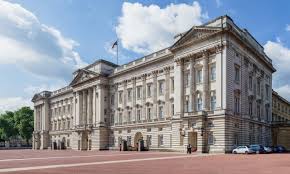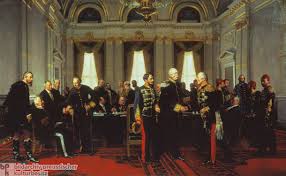Your basket is currently empty!
1793 – Assassination of Jean-Paul Marat (Paris, France)

On July 13, 1793, radical journalist and revolutionary Jean-Paul Marat was assassinated in his bathtub by Charlotte Corday. Marat was a prominent figure during the French Revolution, known for his inflammatory writings in “L’Ami du peuple” (The Friend of the People). Corday, a Girondist sympathizer, believed Marat was responsible for the Reign of Terror’s excesses and hoped his death would stop the violence. His assassination elevated him to the status of a martyr among the Jacobins, further intensifying the radical phase of the revolution. Jacques-Louis David’s famous painting, “The Death of Marat,” immortalized this dramatic event. This act of violence deeply impacted the political climate in revolutionary France. It underscored the extreme polarization and bloodshed that characterized the period.
1837 – Queen Victoria Moves to Buckingham Palace (London, UK)

Just weeks after her ascension to the throne, Queen Victoria made her official move into Buckingham Palace on July 13, 1837. This marked a significant moment for the young monarch and for the palace itself, establishing it as the primary royal residence in London. Prior to this, St. James’s Palace had been the official seat of the British monarch. Victoria’s decision brought the heart of the monarchy directly into the bustling capital. Her long reign would see the palace expand and become a central symbol of the British Empire. This move cemented Buckingham Palace’s iconic status as a global landmark.
1878 – Treaty of Berlin Signed (Berlin, Germany)

The Treaty of Berlin was signed on July 13, 1878, officially concluding the Congress of Berlin. This major diplomatic conference aimed to settle the “Eastern Question” following the Russo-Turkish War (1877–1878). European powers, including Great Britain, Austria-Hungary, France, Germany, Italy, Russia, and the Ottoman Empire, participated in reshaping the map of the Balkans. The treaty recognized the full independence of Romania, Serbia, and Montenegro, and granted limited autonomy to the Principality of Bulgaria. It also transferred some Ottoman territories to other European states. The Treaty of Berlin attempted to stabilize the volatile Balkan region, though many of its provisions laid the groundwork for future conflicts.
1930 – First FIFA World Cup Begins (Montevideo, Uruguay)

The inaugural FIFA World Cup kicked off in Montevideo, Uruguay, on July 13, 1930. This historic tournament marked the beginning of football’s most prestigious international competition, uniting teams from across the globe. Thirteen national teams participated in this first edition, with many European teams opting out due to the long and expensive transatlantic journey. Uruguay, as the host nation and reigning Olympic champions, ultimately triumphed, defeating Argentina in the final. The event laid the foundation for the quadrennial spectacle that would capture the hearts of billions worldwide. This groundbreaking tournament established football as a truly global sport.
1977 – New York City Blackout (New York, USA)

On the evening of July 13, 1977, a massive power blackout struck New York City, plunging nearly all of the city and parts of its suburbs into darkness. The outage was caused by a series of lightning strikes on power lines that led to a cascade of equipment failures. This was New York’s second major blackout in just 12 years, following the Northeast blackout of 1965. The 1977 blackout lasted for approximately 25 hours, leading to widespread looting, vandalism, and arson across the city, particularly in poorer neighborhoods. The event exposed deep social tensions and economic disparities within the city. It also prompted significant reevaluations of infrastructure resilience and emergency preparedness.
1985 – Live Aid Concerts Held (London, UK & Philadelphia, USA)

A truly global musical phenomenon, Live Aid, took place on July 13, 1985, with concurrent concerts in London (Wembley Stadium) and Philadelphia (JFK Stadium). Organized by Bob Geldof and Midge Ure, the event aimed to raise funds for famine relief in Ethiopia. Featuring an unprecedented lineup of rock and pop music’s biggest stars, it was broadcast worldwide, reaching an estimated 1.9 billion viewers in 150 countries. The concerts raised over $127 million (equivalent to over $350 million today) and significantly increased public awareness of the crisis. Live Aid remains one of the largest-scale and most impactful charity events in history. It demonstrated the power of music for global humanitarian causes.
Want to dive deeper into ancient warfare? Don’t miss our articles on Timeline Stories.
